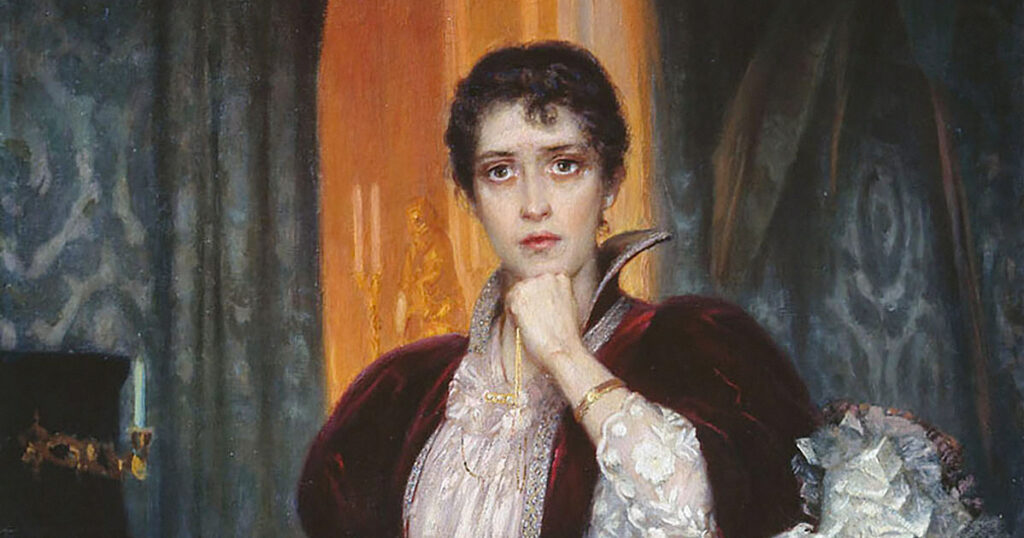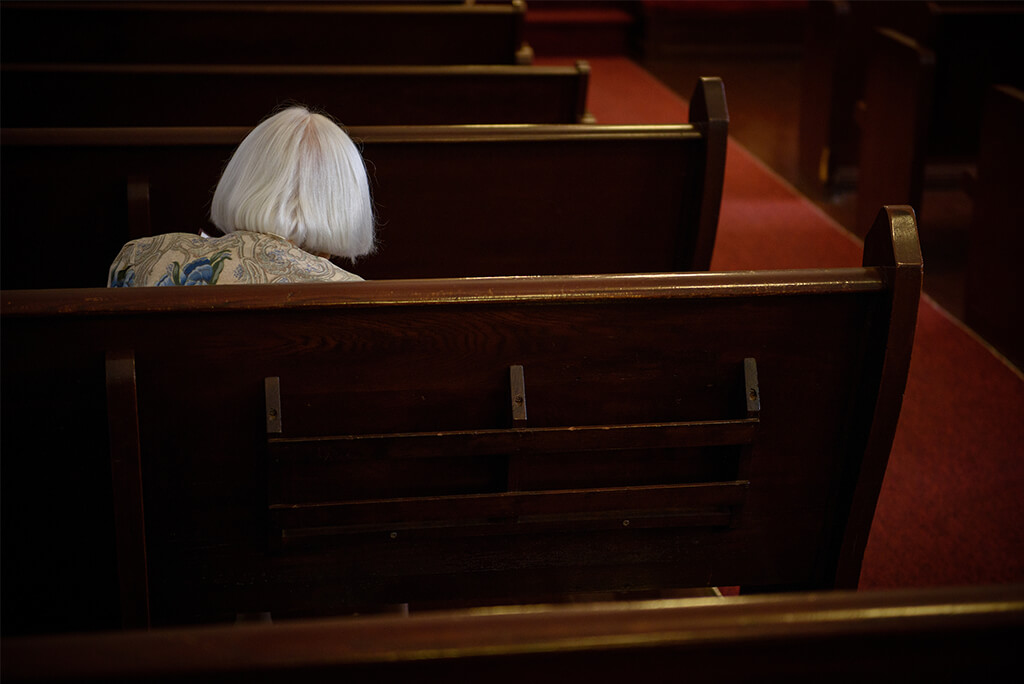A literary reflection by Josh Pauling on Leo Tolstoy's "Anna Karenina." This is one installment of a monthly series providing reflections on works of literature from a Lutheran perspective.
Nearly a century before the western world would undergo the sea change of perspective in sexual ethics now known as the Sexual Revolution, Leo Tolstoy wrote a novel that presciently peered into the world of duplicitous relationships, sexual liberation and the consequences.
Written in 1877, Tolstoy’s classic Anna Karenina is set in 19th century Russia and traces the lives of a wide range of aristocratic and peasant characters, vividly developing their personal relationships and internal struggles. In so doing, Tolstoy throws the realities of marriage and family into bold relief, uncovering their complex corrugations in ways that seem so contemporary. Although he wrote long before the Sexual Revolution, Tolstoy anticipates the tragic effects of such an ethic on human life.
Sexual liberation’s false promises and the emptiness of self-serving love
As the book’s first sentence asserts, “Happy families are all alike; every unhappy family is unhappy in its own way.” But as Tolstoy shows, unhappiness in any family is usually connected to self-serving love.
The character that most embodies such selfishness is Alexei Vronsky, a handsome aristocrat who revels in high society, devotes his energies to beautiful young women and views marriage as “something alien, repellant, and, above all, ridiculous.” Vronsky first sets his sights on the somewhat naïve debutante, Kitty Shcherbatsky, and gets her to fall for him. He has a brief twinge of conscience over his toying with Kitty, but concludes, “Well, what then? Oh, nothing. It’s good for me, and good for her.”
Vronksy’s interest in Kitty vanishes when he discovers a more tempting and challenging trophy: Anna Karenina, wife of a high-ranking government minister. Anna’s marital status does not deter Vronsky’s desire but rather heightens it.
Such disdain for marriage was common in Vronsky’s elite circles. On the one hand, there were those lower class, “stupid … people, who believe that one husband ought to live with the one wife whom he has lawfully married; that a girl should be innocent, a woman modest, and a man manly, self-controlled, and strong; that one ought to bring up one’s children, earn one’s bread, and pay one’s debts.” But Vronsky identifies with the upper class, the “real people” for whom “the great thing was to be elegant, generous, plucky, gay, to abandon oneself without a blush to every passion, and to laugh at everything else.”
Tolstoy explores how this self-serving, flawed understanding of love leads to duplicitous marriages and promiscuous relationships. Several of the book’s main characters reject marital and familial commitments, and their choices leave them and their families deeply broken. Vronsky’s and Anna’s affair, with its unrestrained and disordered desire, ultimately consumes them both, as Vronsky confesses: “As a man, I’m a wreck, . . . [stuck in] a wholly useless remorse never to be effaced.”
All of this is a clear and vivid display of what happens when we reject God’s design. Human beings are built in such a way as to flourish within family units. From the beginning God has designed that “man will leave his father and mother and be united to his wife, and they will become one flesh” (Gen 2:24). In jettisoning the one-flesh union of holy matrimony and the blessing of children that flow from it, we end up going against the grain of our design and the principles God has stitched into the very structure of the cosmos.
Sexual liberation’s forgotten casualties: Children
Tolstoy also explores how sexual liberation affects children. To Vronsky, “a man is in duty bound to live for himself, as every man of culture should live,” and children are inconveniences that should not “prevent their parents from enjoying life.”
As Anna and Vronsky begin their affair, Anna’s son Seryozha haunts them. Vronksy often notices the child’s “bewildered glance fixed upon him … as though the child felt that between this man and his mother there existed some important bond, the significance of which he could not understand.” Despite being pricked in their consciences by Seryozha, they refuse to reorder their desires; instead they flee to Italy.
Seryozha becomes a casualty of their self-serving love. His experience illustrates exactly what Them Before Us founder Katy Faust describes: “Children are at the mercy of adult decision-making in a world that increasingly believes adult happiness and personal fulfillment is the highest pursuit.”[1] Christianity offers a rich and beautiful alternative to the child-averse ethic baked into the Sexual Revolution. Instead of seeing children as hindrances to adult desires, children are a blessing, a “heritage from the Lord” (Ps 127:3). They are a natural and welcome outcome of marital love, which overflows into new life. Tolstoy points toward this in the book as well.
Sexual fidelity and the joy of self-giving love
Alongside Vronsky and Anna’s libertine relationship, Tolstoy portrays a contrasting experience of marriage and family through the character Konstantin Levin. Levin’s thoughts on marriage are quite different from those of his aristocratic friends. Levin was “so far from conceiving of love for woman apart from marriage that he positively pictured to himself first the family, and only secondarily the woman who would give him a family.” While the elites saw marriage as a life accessory, “for Levin it was the chief affair of life, on which its whole happiness turned.”
Levin’s yearning for a family centers on his long-time friend Kitty, who, while she was being strung along by Vronsky, declined Levin’s original marriage proposal. After an excruciating delay, Kitty and Levin finally reunite in one of the most moving parts of the novel, in a mutual display of forgiveness, humility and self-giving.
As his marriage approaches, Levin revisits questions of God that he had dismissed when he was single. After Levin expresses his doubts to the priest who will officiate at his wedding, the priest prods him to consider his role as a husband and father. If Levin will be concerned for his children’s physical well-being, the priest asks, should he not be even more “anxious for [their] salvation, [their] spiritual enlightenment with the light of truth?”
The priest was right. When Kitty goes into labor with their first child, Levin’s spiritual quest reaches a critical moment. He cries out, “Lord have mercy on us! pardon us! aid us!” The narrator explains, “at that instant he knew that all his doubts, even the impossibility of believing with his reason … did not in the least hinder his turning to God. … To whom was he to turn if not to Him in whose hands he felt himself, his soul, and his love?”
Levin’s religious reawakening renders artistically what Mary Eberstadt argues in How the West Really Lost God: that “there is something critical about the natural family in the transmission of Christianity.” This is exactly what Levin experiences within the structure of family life: “Something had happened that seemed extraordinary to him. He, an unbeliever, had fallen into praying, and at the moment he prayed, he believed.” Here Levin was feeling call and pull of his vocation as father to serve his family, pray for his family, and teach his family the eternal truths of God (Duet 6:7, Eph 5:26, 6:4).
Living in a family brings you outside of yourself into the joy of properly ordered love. Like Christ and His bride the church, Levin and Kitty were made complete as they brought new life into the world. This self-giving love upon which marriage is based is also profoundly displayed in Kitty’s care for Levin’s dying brother. While Levin struggled to know what to do to alleviate his brother’s suffering, Kitty “pitied him” and “immediately set to work.” Levin watched in awe as Kitty, who had no blood relation to his sickly brother, poured out embodied care and love with no strings attached. Upon the brother’s death, Levin, “thanks to his wife’s presence, felt that love saved him from despair.”
How art adorns arguments for truth
In this classic novel, Tolstoy beckons the reader to choose the better path, contrasting the destructive adultery of Vronsky and Anna with Levin and Kitty’s bumpy yet enchanting journey into the life of married love.
Beautiful art and great literature play a key role in shaping our imagination, morality and desires. Rational arguments and research studies are certainly vital in building the case, but there is something humans find captivating and compelling in artful stories. In other words, art adorns the argument. To be sure, Tolstoy’s own rocky marriage and tense family life add layers of complexity here — but perhaps these contributed to his profound ability to diagnose such intimate and intricate aspects of human existence so lucidly.
Tolstoy shows the destructive dead-ends of disordered desires and self-serving love and the depth of meaning and purpose found in self-giving love. Classic and complex stories like Anna Karenina offer something supra-rational that resonates deeply and taps into universal human longings.
[1] https://thembeforeus.com/children-have-rights/
Cover image: “Anna Karenina,” Heinrich Matvejevich Maniser, 1904.





This made me cry for love of Christian precepts. If Kate Chopin’s The Awakening had been written with Scripture and the good Lord in mind, what passing fancies for the sake of supposed modernity might have become a chance to engage in the Spirit and witness to the Christ.
From what I have read, Tolstoy was a horrible husband in real life. So it seems odd that we would seek insight into Sixth Commandment issues from him. Also, J.B. Phillips warned long ago that we should beware of thinking that fiction gives us accurate knowledge about real life, when it is by definition made-up stories.